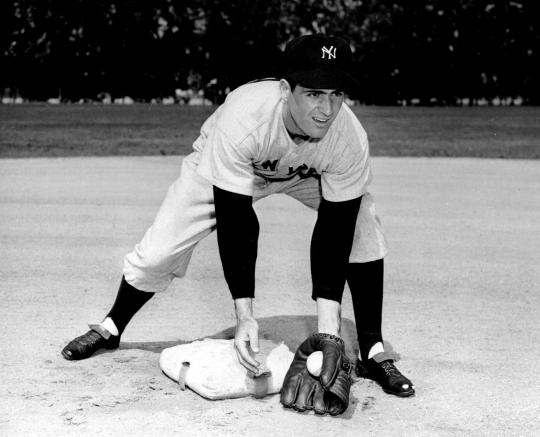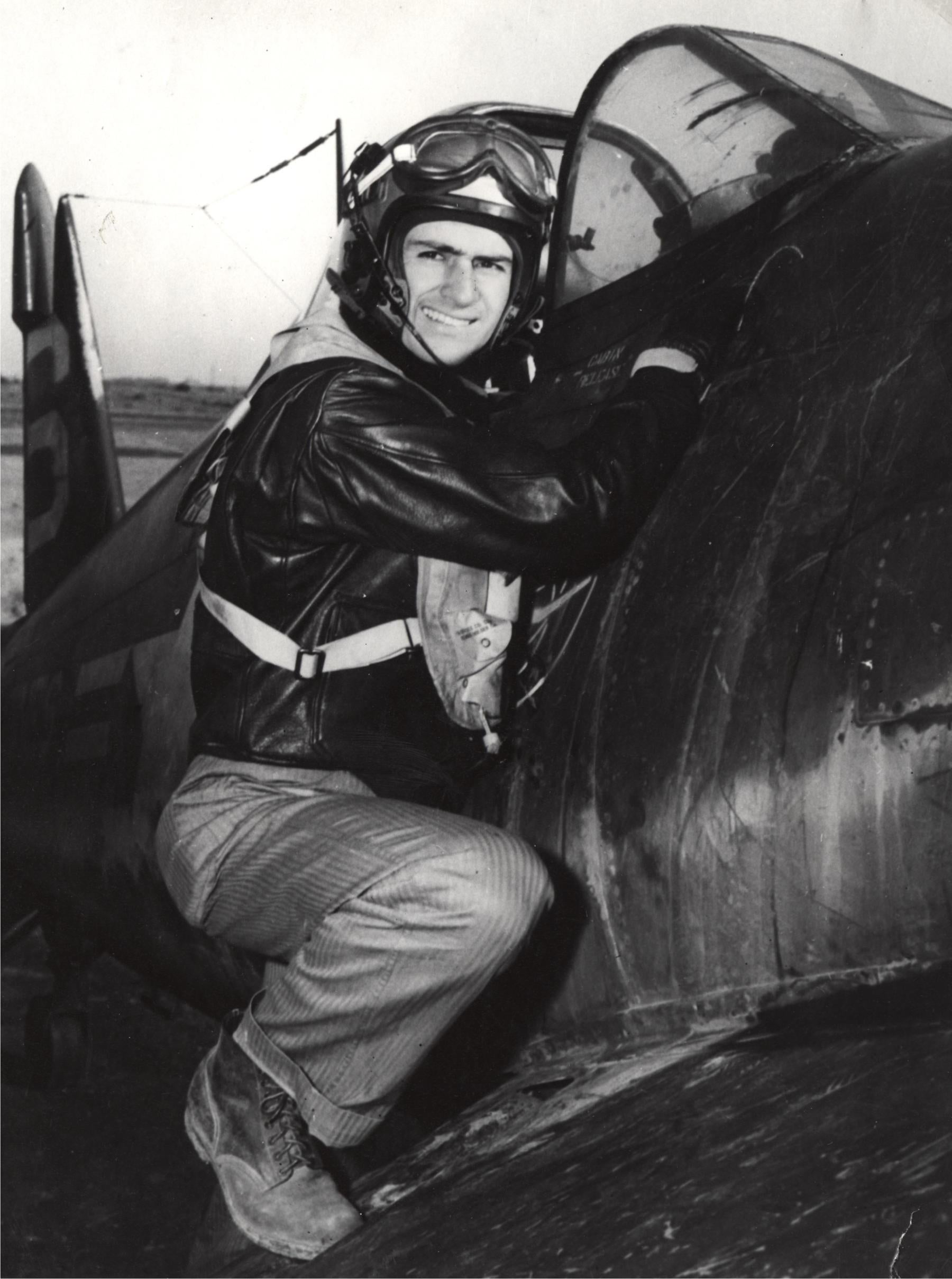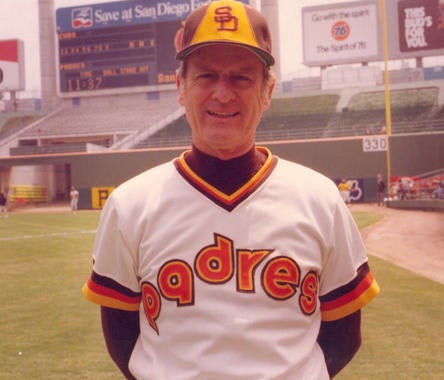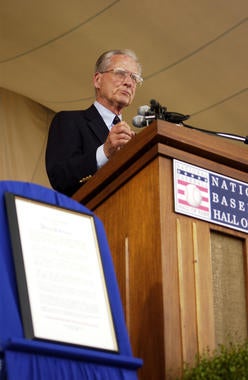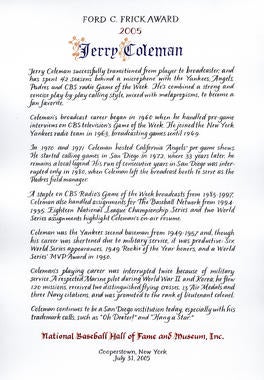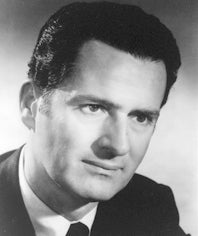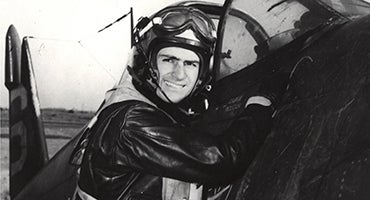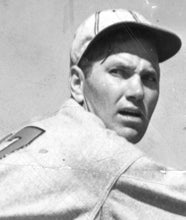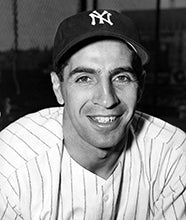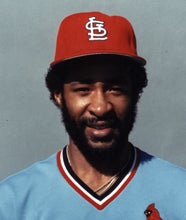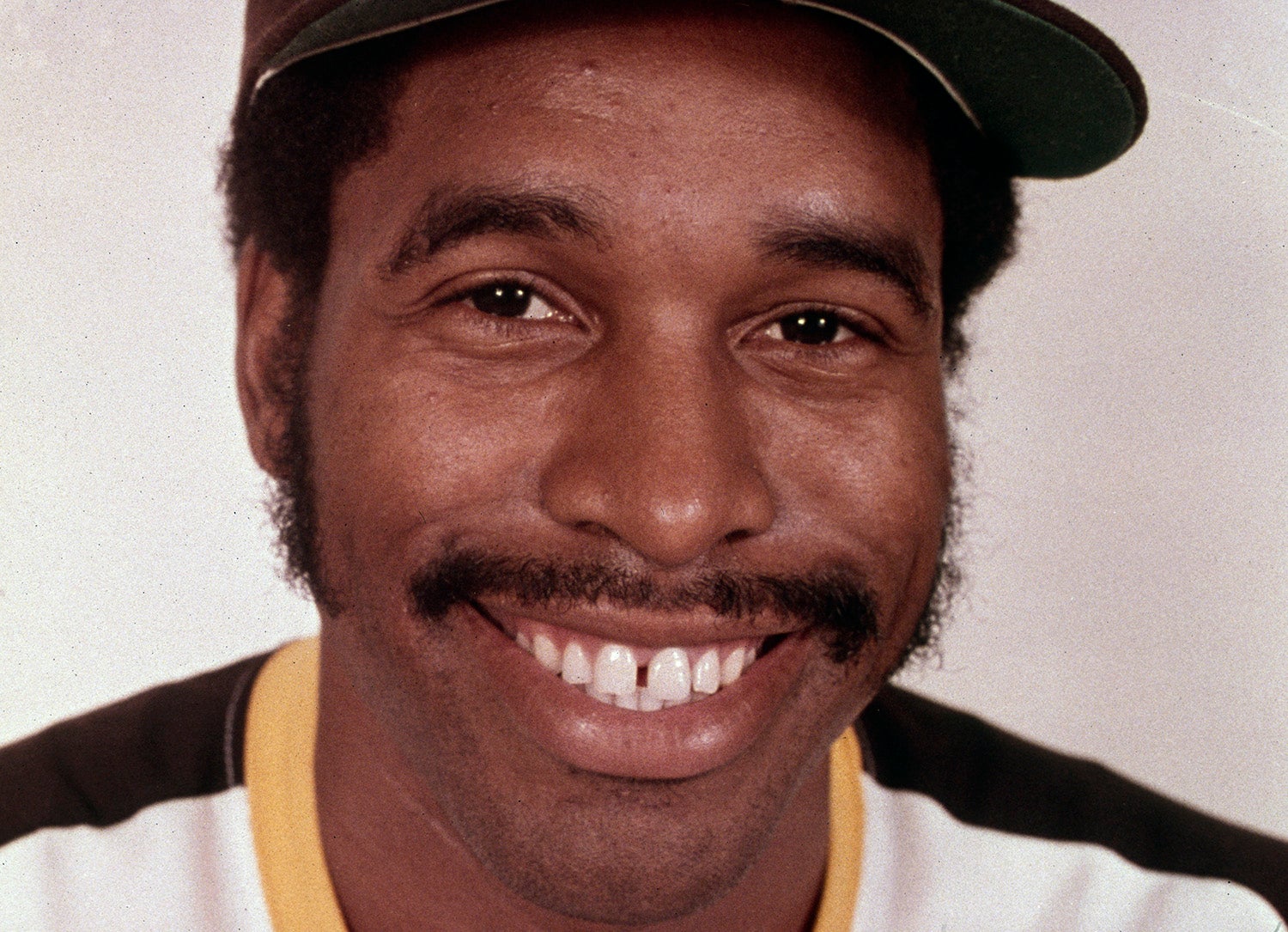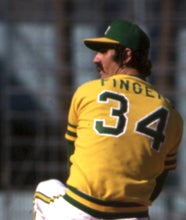- Home
- Our Stories
- Double Duty
Double Duty
Many Major Leaguers interrupted their playing careers to serve their country in conflict, but only a few did it twice.
2005 Ford C. Frick Award-winning broadcaster Gerald Francis “Jerry” Coleman was one of them.
Coleman spent his whole career in the Yankees organization, playing six years in the minors and nine in the majors, breaking once from each to serve in World War II and Korea.
After signing with the Yankees following his high school career, he played in 83 games in Class D Wellsville before turning 18 and joining the Marine Corps as a Naval Aviation Cadet in the V-5 program in San Francisco, Calif.
Coleman was quickly shipped out to the Pacific theater, where he flew 57 combat missions over Guadalcanal, the Solomon Islands and the Philippines. He specialized in flying close air-support missions for his brother Marines involved in ground combat operations.
In 1946, he resumed his playing career and made it to the big leagues in 1949. In 1952, he was again called into service in the Korean War. He flew an additional 63 combat missions during this conflict, focusing on close air support, interdiction and strike missions. Coleman played in just 11 games in 1952 and eight in 1953.
During his two periods of service, Coleman flew 120 missions, received two distinguished flying crosses, 13 Air Medals and three Navy citations, while earning the title of lieutenant colonel. He is the only Major League Baseball player to have seen combat in both wars.
On the field, the 1950 All-Star appeared in six World Series and earned four rings in nine seasons, compiling a .263 batting average in 723 career games, earning Rookie of the Year honors from the Associated Press in 1949 and World Series’ Most Valuable Player honors in 1950. He played in six World Series and won 8 division titles as the Yankees second baseman. Injuries forced his retirement in 1957.
Coleman remained in the Marine Corps Reserves until his retirement as a lieutenant colonel in 1964. In 2005, he was inducted into the Marine Corps Sports Hall of Fame.
Just three years after his retirement from baseball, Coleman transitioned into the broadcast booth handling pre-game interviews for Dizzy Dean and Pee Wee Reese on CBS television Game of the Week.
Beginning in 1963, Coleman joined a Yankees radio team featuring Mel Allen, Red Barber, Joe Garagiola and Phil Rizzuto, and was an active member of the broadcast team annually through 1969. In 1970, Coleman moved to southern California to host the Angels’ pre-game show, while anchoring the evening sportscasts of KTLA-TV.
In 1972, he became the voice of the San Diego Padres in only their fourth year in existence. Then, in 1980, Coleman was named the Padres’ manager, posting a record of 73-89 in his only season as he skippered future Hall of Famers Ozzie Smith, Dave Winfield and Rollie Fingers.
He returned as voice of the Padres in 1981. Coleman’s work with CBS Radio Game of the Week continued through 1997, with additional assignments for The Baseball Network (1994-1995).
In 2005, he was honored by the Baseball Hall of Fame with the Ford C. Frick Award for excellence in broadcasting. He passed away on Jan. 5, 2014 after more than four decades of service with the Padres.
Samantha Carr is a freelance writer from Fairport, N.Y.

